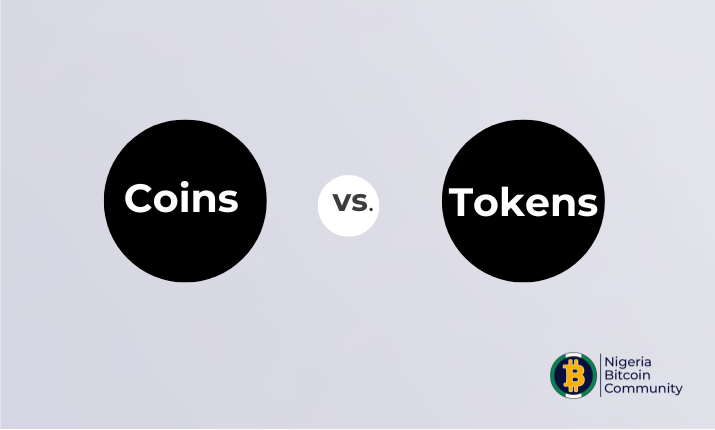Coins are cryptocurrencies that have their independent blockchains.
Tokens, on the other hand, are created on top of an existing blockchain.
Put in another way:
Coins are the native currency of a blockchain, while tokens are currencies of applications built on that blockchain.
To explain better, let me give this scenario:
Imagine that you’re planning a vacation and need a place to stay.
You’ve got two options to choose from: you can either buy a house or rent one through Airbnb.
If you decide to buy a house, it becomes your property.
It’s fantastic because you can personalize it however you want.
But here’s the catch: You must have enough capital and resources.
Now, let’s check out the Airbnb option.
When you opt for this, you can use the house for your stay.
You also enjoy its facilities for your needs during that time without having the capital and resources required to buy a house.
In crypto, a coin is just like buying a house.
When a team creates a coin, they build a blockchain and make important decisions about its security and scalability features.
It’s all part of crafting the perfect house for their coin to thrive!
On the other hand, a token is more like renting through Airbnb.
It’s like getting a special pass to access certain features within a particular blockchain.
And you don’t have to worry about the technical stuff because that’s taken care of by the blockchain’s creators.
Now, examples of coins are more prominent cryptocurrencies like:
They power their blockchain and play a significant role in its ecosystem.
Tokens are cryptocurrencies like UNI, SUSHI, BAT, and CAKE because they are hosted on other blockchains.
UNI and SUSHI are hosted on the Ethereum blockchain, while CAKE is on the BNB blockchain.
While coins power the whole blockchain, tokens fuel specific projects within that blockchain.
For instance, Ethereum’s native coin, ETH, is used to validate all transactions on the Ethereum blockchain.
UNI, on the other hand, powers the Uniswap platform that is built on Ethereum by acting as its governance token.
These tokens are like the gears that make a specific project run smoothly within the broader blockchain ecosystem.
I hope you understand these concepts better.
Ethereum is the first blockchain to make token creation possible, and today, most tokens are built on the Ethereum blockchain.
So, the big question is:
Which one is better- Coins or Tokens?
Well, it all depends on the creators’ vision!
Coins offer the freedom of customizing a dedicated blockchain for higher security.
On the other hand, tokens are easier to create, require less capital, and can leverage the security of existing blockchains.
Sometimes, developing teams start with a token and later transition it into a coin.
A typical example is BitDAO’s token converted into the MNT coin and BNB token converted to BNB coin.
And this is where it gets interesting.
Tokens can be replicated on multiple blockchain networks, allowing users from various ecosystems to interact seamlessly.
For example, the USDT token has different versions that enable it to be used on networks like Ethereum, BNB chain, Tron, etc.
Additionally, some coins can be represented as tokens on other networks for cheaper transaction fees and interoperability.
For instance, because of high gas fees and compatibility issues, a representation of a coin, like ETH, can be created as a token on another network using a process called “wrapping.”
The token becomes a Wrapped Token called Wrapped ETH or WETH.
So, to answer the question of which is better, I will say it entirely depends on you:
- What you want the project to do
- The resources you have at hand
- The level of security you want your project to possess
- Etc.
Recent projects start as tokens and transition to coins at a later stage.
So, you can follow suit or create your own coin if you have the resources.
This is where I will end today’s post. I hope you got value.
If you want to learn how to trade cryptocurrencies and learn more about crypto and DeFi, create a Bybit account and join our Telegram group.
I will see you in the group and my next post.



0 Comments